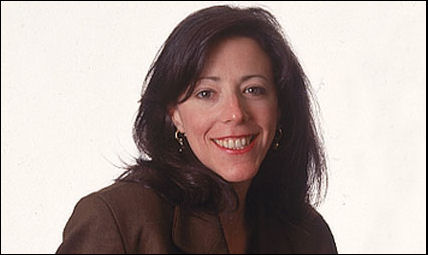The Tribeca Film Festival acquired an unsavory rep when IndieWire broke that story about ticket prices being raised by 50%. That was three and a half weeks ago. Today, finally, the money issue was addressed by festival co-founder Jane Rosenthal in an interview with the Hollywood Reporter‘s Gregg Goldstein. And the explanation is basically that she and her partners have been saddled with rising costs and have personally been losing money on the festival, and they had to alleviate this.

Rosenthal says the festival loses about $1 million annually, and that she, her co-founder husband Craig Hatkoff and partner Robert De Niro have had to personally cover this deficit.
“No official figures are available on how much the festival costs, earns or loses because, since its second year, Tribeca has been a private, for-profit organization run under the umbrella of the private, for-profit Tribeca Enterprises,” writes Goldstein, “which was founded by Hatkoff, Rosenthal and De Niro in 2003.
“A Tribeca insider does claim that for the past few years, the cost of staging each fest has increased to about $13 million (20% of which is ponied up by the festival’s founding sponsor, American Express), and the event has been running a $1 million annual deficit — which comes right out of Rosenthal’s, Hatkoff’s and De Niro’s pockets.
“Hatkoff says that Tribeca now costs three to four times what it did when it was initially conceived in 2002 as a five-day event that hosted some 150,000 attendees. By last year, it had ballooned to a 13-day event and more than tripled in attendance. And yet they festival has, according to the aboe arithmetic, been bringing in $12 million in revenue to its $13 million in expenses.
“The rationale for a bigger scale is that there are fixed costs inherent in running it no matter how large we are,” Hatkoff tells Goldstein. “It’s Economics 101. Not having it grow will just exacerbate the cost structure. It’s not about making money for the festival.”
“Still, this year’s 50% jump in most ticket prices has caused grumbling in some quarters. Rosenthal defends this by saying she is saddled with having to retrofit theatres and bring in high-cost talent and pony up for pricey hotel rooms.
“When we have to retrofit theaters with digital projection and fly more filmmakers in with fewer hotel rooms available than ever before, we have to pay for it,” she says. “We don’t get city and state funding the way (the Toronto International Film Festival), (the Sundance Film Festival) and (the Festival de Cannes) do. I don’t even get any substantial funding for free events. Without that, I had to raise ticket prices.”









